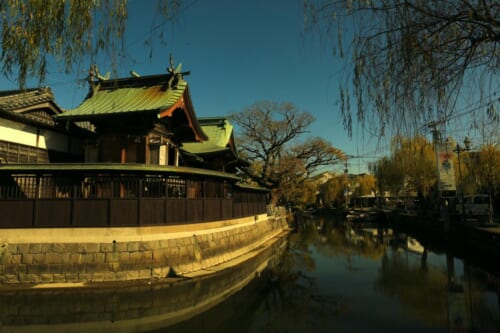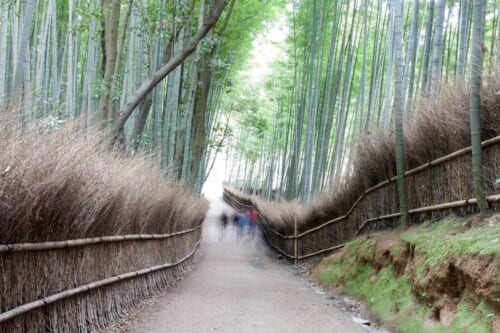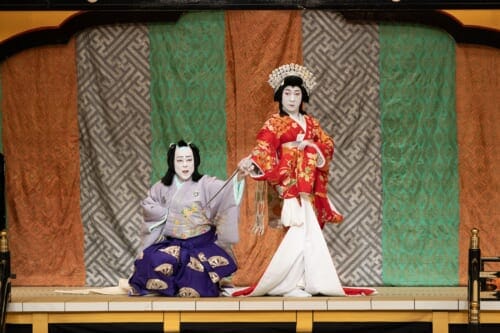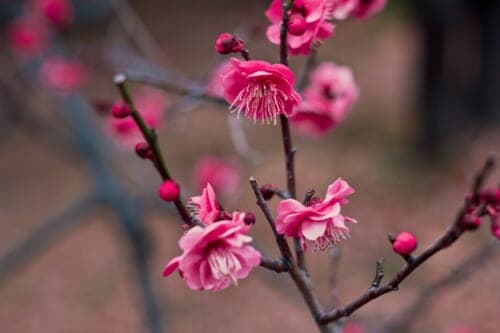In Japan, as well as in many other countries, birthdays are a reason for celebration. But has it always been the case? How do people wish “happy birthday” in Japanese, and how do they celebrate in Japan? You might happen to be in Japan on your birthday or the birthday of a new Japanese friend or coworker: how should you behave? You first need to know how to say “happy birthday” in Japanese.
There are different politeness levels in the Japanese language: a formal one to use with elders or people of a higher rank (for example, a teacher or your boss in the office) and an informal one for friends, relatives, and people of a lower age or rank.
So as it happens in the expressions used to apologize and say thank you in Japanese, there are also two ways to say “happy birthday.”
How to Say “Happy Birthday” in a Formal Situation
In a formal situation, the most suitable expression is o-tanjōbi omedetō gozaimasu (お誕生日おめでとうございます). Let’s see how it is structured:
- お o = honorific prefix
- 誕生日 tanjōbi = birthday
- おめでとう omedetō = congratulations
- ございます gozaimasu = expression of politeness in the formal register
A literal translation would therefore be “Many congratulations on your birthday.”
How to Say “Happy Birthday” in an Informal Situation
If you are speaking with friends, relatives, or younger people, you can skip the formalities — just remove the honorific prefix and the expression of politeness and simply say tanjōbi omedetō (誕生日おめでとう).
However, younger generations nowadays tend to use the even more informal expression happī bāsudē (ハッピーバースデー), coming from the English “happy birthday.”
How are Birthdays Celebrated in Japan?
The idea of celebrating your birthday on the day you were born is pretty recent in Japan. Until the 1950s, all birthdays were celebrated on the first day of each year. This is because the ancient Japanese believed that New Year’s Day marked the beginning of a new year in one’s life, and therefore everyone got older on the same day. As Japanese culture was influenced by Western culture after World War II, the idea of individual birthdays began to catch on until it was made official in 1949 with the so-called “Law concerning the counting of age.”
But how do people celebrate birthdays in Japan? Pretty much the same way we do: with friends and family, gifts and, of course, a good cake! Couples, on the other hand, consider birthdays a romantic occasion, as they do for Christmas Eve.
When someone celebrates their birthday, they are usually not responsible for organizing their party: friends will instead take care of that and split the costs. Most restaurants and drinking places are available to host birthday parties and provide special offers (サービス, sābisu “discount, free”) on desserts and drinks.
Alas, there is no Japanese version of the song “Happy Birthday to You,” so when it’s time for the birthday boy or girl to blow out their candles, everybody will sing the English version.
Now to the birthday presents. Japan is known for its complex gift-related culture, but there is no need to worry: birthday presents are rarely expected unless you are a close friend or family member, and often a card or a small confectionery box will do. A seasonal fruit basket is also a popular and welcome gift for all ages.
To celebrate a coworker’s birthday, it’s common to buy a bouquet of flowers or a bag of candies, adding a card signed by all coworkers.
Other Age-Related Milestones Celebrated in Japan
As in every culture, there are ages in Japan considered more meaningful than others and therefore require special celebration. Here are some special birthdays:
- Shichi-go-san (七五三), literally “Seven-Five-Three,” is a traditional rite of passage for three and seven-year-old girls and three and five-year-old boys. It is held at shrines on November 15 each year to celebrate the growth and well-being of young children. The origin of this ceremony dates back to the Muromachi period (1336-1573). During this period, medicine was still underdeveloped, and food was scarce, so many children died while still infants. When they managed to survive their first few years of life, people expressed their gratitude to the deities through prayers.
- Hatachi (二十歳) is Japan’s 20th birthday, the traditional coming-of-age year (although the legal age is lowered to 18 years old). A national public holiday, Seijin no hi (“coming-of-age day”), is dedicated to this milestone. It is held on the second Monday of January for those who have, or will be 20-years-old between April 2 of the previous year and April 1 of the current year.
- Kanreki (還暦), on the other hand, traditionally marks a milestone for the elderly. Five cycles of the Chinese zodiac are completed when a person turns 60, at which point they are believed to be reborn. On this occasion, people celebrate by wearing a red sleeveless jacket, which symbolizes rebirth.
Last but not least, an essential must-celebrate occasion in Japan is the Emperor’s birthday, Tennō tanjōbi (天皇誕生日). On this national holiday, the Tokyo Imperial Palace gates are opened specially to the public when you usually only have access to the surrounding park. The Emperor, together with the Imperial Family, greets people from a balcony of the palace. The crowd, in response, wishes him a long life by repeating the word banzai (万歳) in chorus and wave Japanese flags.
Except for some cultural differences, celebrating a birthday in Japan is not so different from celebrating it anywhere else in the world. It remains a day celebrating life and a festive occasion to spend with loved ones.









No Comments yet!